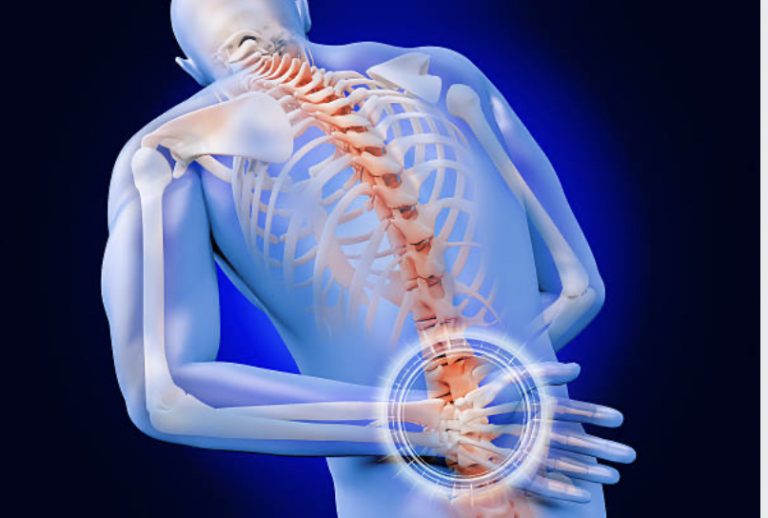The term collapsed disc is commonly used to describe a condition that causes a disc in the spine to lose height or shape.
The spinal discs provide cushioning and proper spacing between the vertebrae, allowing spinal nerves to pass between them. Various degenerative spine conditions, such as degenerative disc disease, herniated discs, and bulging discs, can cause a spinal disc to lose height and/or shape. When this occurs, the space between the vertebrae decreases, and spinal nerves may become compressed or pinched.
Collapsed Disc Causes
A collapsed disc can develop due to a series of degenerative spine conditions, meaning conditions that develop as the spine naturally deteriorates and weakens with age. These degenerative spine conditions can include:
- Degenerative disc disease: As a person ages, the spinal discs can become weaker and lose water content. When this happens, the spinal discs tend to lose height and the space between the vertebrae can become smaller.
- Herniated disc: This degenerative spine condition occurs when the jellylike interior of a disc pushes through a tear in the disc’s tough exterior. The tear can be caused by degenerative changes that occur as a person ages or as a result of traumatic injury.
- Bulging disc: The causes of a bulging disc are similar to those of a herniated disc. With this degenerative spine condition, however, the interior of the disc remains contained within the outer layer, but the spinal disc becomes flattened and extends beyond its usual perimeter.
In addition, other collapsed disc causes include sudden injury or trauma that causes the disc to flatten and change shape.
Collapsed Disc Symptoms
Collapsed disc symptoms occur when the space between the vertebrae becomes narrowed. This will cause spinal nerve roots to compress. When a spinal nerve is compressed, patients can experience the following collapsed disc symptoms:
- Pain
- Numbness
- Muscle weakness
- Tingling
- Burning sensation
- Limited mobility
When these collapsed disc symptoms begin, you should schedule an appointment with your doctor to discuss the treatment options available to help you find pain relief.
Collapsed Disc Treatments
Many doctors begin treatment for a collapsed disc with conservative therapies. These include pain medication and hot and/or cold therapy, among other nonsurgical options.
If these treatments provide little to no relief after several months, you may need to consider surgery. At BEST Health System, we provide minimally invasive spine surgery as an outpatient alternative to traditional open spine surgery. To date, our procedures have helped thousands of patients find relief from chronic neck and back pain. However, depending on the patient’s health history and condition, the surgeon will work collaboratively with the patient to decide on a treatment path.
BEST Health System
BEST Health System specializes in minimally invasive spine surgery. It is a safer and more effective alternative to traditional open back procedures. Our procedure offers many benefits, including less risk of infection and no lengthy recovery. For more information on how BEST can help you find relief from chronic neck and back pain, contact us today.
